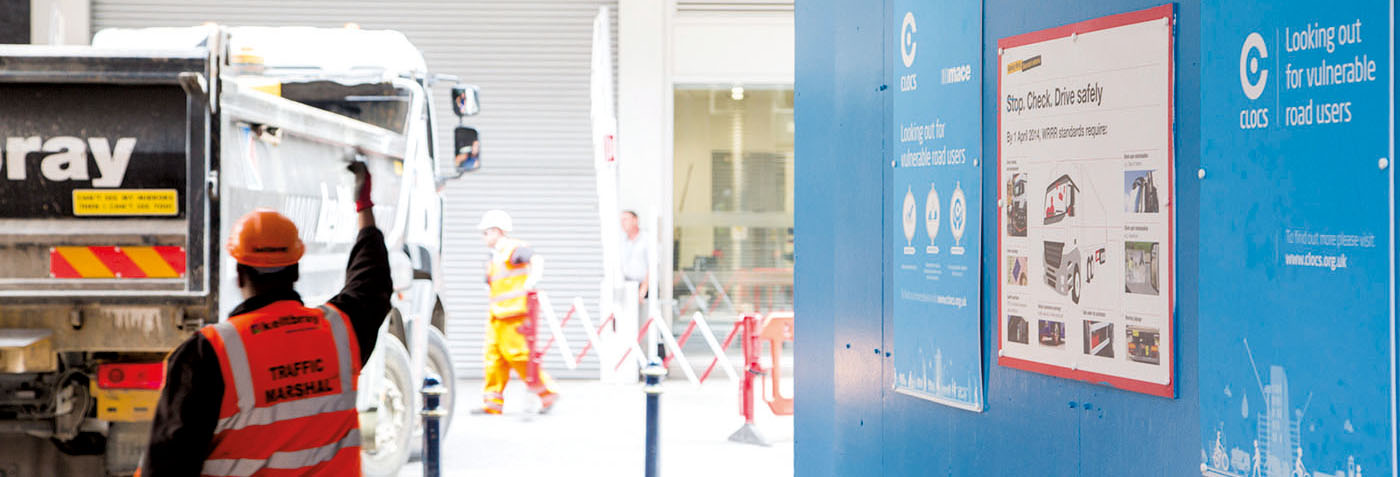
The CLOCS Standard (section 5.11) requires contractors to:
- ensure effective monitoring of compliance with the CLOCS Standard and provide evidence to the client that the Standard is being upheld by arranging independent formal site monitoring assessments
These visits should be arranged through CLOCS Strategic Partner, the Considerate Constructors Scheme (CCS) and can be purchased when the site is first registered with CCS or at any time thereafter.
When a project is registered with CCS, their system will recognise where the contractor and/or client is a CLOCS member and automatically opt that project in for CLOCS monitoring.
However, we’ve noticed some projects are opting out without clear or obvious justification. While not every project requires monitoring, we would expect these to be the exception rather than the norm and only where there has been an appropriate risk-assessment which has identified little or no risk to vulnerable road users from traffic associated with that project.
Sites with identifiable risks to vulnerable road users, certainly long-term projects, those in busy urban areas or projects with high volumes of deliveries or muck-away, should opt-in for monitoring to ensure compliance and gain valuable feedback.
From discussions with several members, it appears that in most cases, the person completing the site registration simply isn’t aware of the need for a CLOCS visit and is therefore opting out.
To address this, we’ve updated the CCS registration process.
- From June, member projects can still opt out, but a new prompt will remind them of their obligation and emphasise the need for monitoring unless a risk assessment justifies otherwise.
- Additionally, CLOCS will be notified of all sites that do opt-out and will liaise with the member’s lead contact to check if monitoring is indeed needed.
To find out more about CLOCS monitoring, visit here.
Hopefully these additional steps will see more sites siging up for CLOCS monitoring moving forward.
It is vital that CLOCS members not only adopt and implement CLOCS but also take steps to valiudate their own performance to satisfy themselves, their clients and those affected by their work, that they are actually ‘doing CLOCS’ and not just wearing the badge. These visits are a valuable tool to get that third-party assessment and get valuable feedback on what is being done well and where there is room for improvement.
Andy Brooke, CLOCS Programme Director


